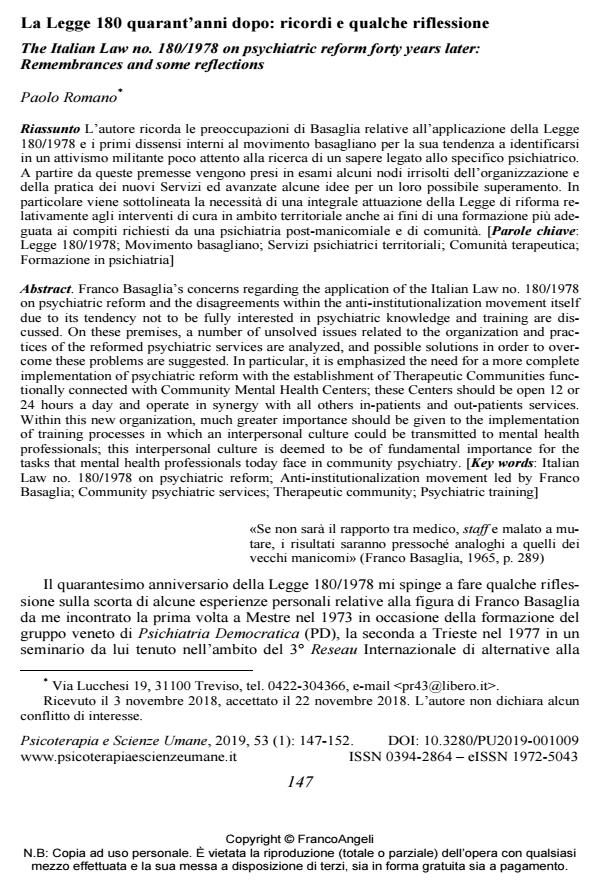The Italian Law no. 180/1978 on psychiatric reform forty years later: Remembrances and some reflections
Journal title PSICOTERAPIA E SCIENZE UMANE
Author/s Paolo Romano
Publishing Year 2019 Issue 2019/1
Language Italian Pages 6 P. 147-152 File size 71 KB
DOI 10.3280/PU2019-001009
DOI is like a bar code for intellectual property: to have more infomation
click here
Below, you can see the article first page
If you want to buy this article in PDF format, you can do it, following the instructions to buy download credits

FrancoAngeli is member of Publishers International Linking Association, Inc (PILA), a not-for-profit association which run the CrossRef service enabling links to and from online scholarly content.
Franco Basaglia’s concerns regarding the application of the Italian Law no. 180/1978 on psychiatric reform and the disagreements within the anti-institutionalization movement itself due to its tendency not to be fully interested in psychiatric knowledge and training are discussed. On these premises, a number of unsolved issues related to the organization and practices of the reformed psychiatric services are analyzed, and possible solutions in order to overcome these problems are suggested. In particular, it is emphasized the need for a more complete implementation of psychiatric reform with the establishment of Therapeutic Communities func-tionally connected with Community Mental Health Centers; these Centers should be open 12 or 24 hours a day and operate in synergy with all others in-patients and out-patients services. Within this new organization, much greater importance should be given to the implementation of training processes in which an interpersonal culture could be transmitted to mental health professionals; this interpersonal culture is deemed to be of fundamental importance for the tasks that mental health professionals today face in community psychiatry.
Keywords: Italian Law no. 180/1978 on psychiatric reform; Anti-institutionalization movement led by Franco Basaglia; Community psychiatric services; Therapeutic community; Psychiatric training
Paolo Romano, La Legge 180 quarant’anni dopo: ricordi e qualche riflessione in "PSICOTERAPIA E SCIENZE UMANE" 1/2019, pp 147-152, DOI: 10.3280/PU2019-001009